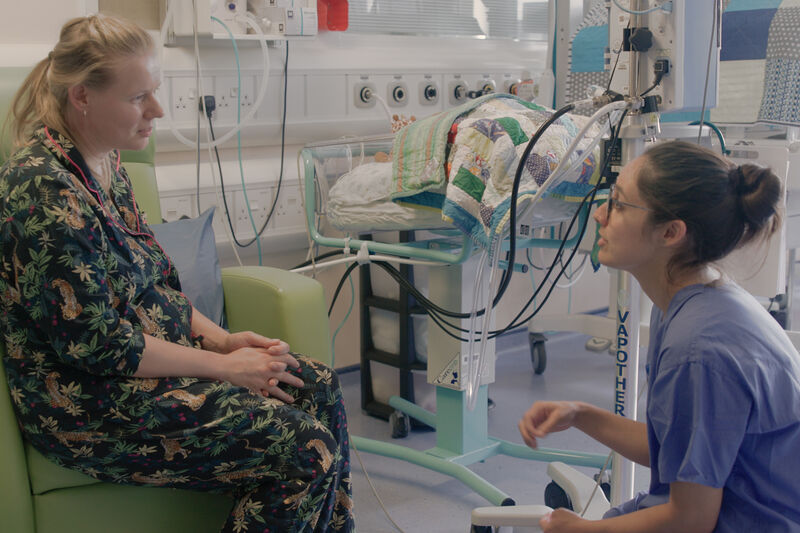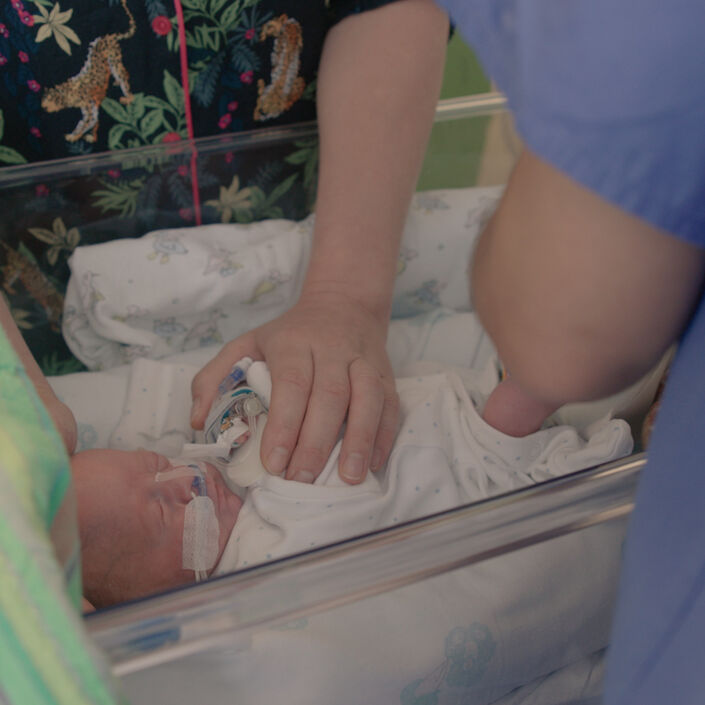Being involved in your baby's care can sometimes mean speaking up for your baby and what you think is best for them, which can be difficult when you’re feeling stressed or emotional.
Many parents tell us how frightening it is when their baby is so small or connected to medical equipment and wires. It’s normal not to feel confident touching or holding your baby at first, and to be worried that you might cause them discomfort or interfere with their medical care.
The priority for staff on a neonatal unit will be to look after the babies, but they are also there to support parents. This can vary between units, but staff should encourage you to be involved in your baby’s care and teach you how to comfort and care for them.
This section offers some suggestions for how you can approach conversations with staff about being involved in your baby’s care and procedures.
Talking to doctors during rounds
Each unit works in a different way, but there are some routines that are found in most hospitals. ‘Rounds’ are when the medical team plans your baby’s care. These usually happen once or twice a day: one in the morning, and one in the afternoon.
You can ask to be involved in these, and the doctors will try to explain what is going on with your baby’s care in simple terms so that everyone can understand. Don’t be afraid to ask them to simplify or repeat things, they will want you to fully understand your baby’s care.
Taking part in rounds gives you a chance to stay informed and be fully involved in decisions about your baby’s care. Feel free to ask the medical team questions or share any thoughts you have about your baby’s condition or treatment.
For example, you might ask the doctor:
- “How has my baby responded to treatment?”
- “What’s next for my baby? What other procedures are due to happen?”
- “When will the next procedure happen?”
You can also ask them to explain all the treatments to you:
- “I don’t know what that means, please can you explain it again?”
You can also use this time to tell the staff what you have noticed about your baby and what you want for future procedures. This might include:
- Telling them how your baby seems to you. Perhaps they have been awake or sleeping more than usual, crying or seem uncomfortable.
- Asking them to wait before doing any further procedures because you have noticed your baby is distressed.
- Telling staff that you wish to be present for, or to comfort your baby during, procedures and asking them to show you how you can be involved.


